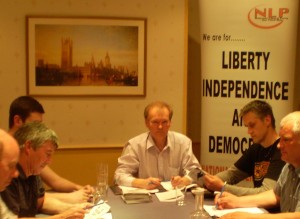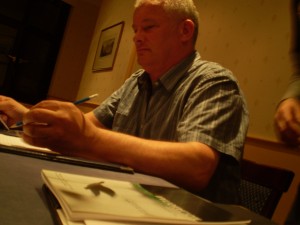A FORGOTTEN TALE
Whilst the modern day National Liberal Party in the UK was only formed a few years ago there was an earlier version.
In 1930’s Britain the Parliamentary Liberal Party was divided over the measures they believed were required to govern a Britain rocked by a world depression. A minority had come to believe that protectionist measures, contrary to Liberal dogma in favour of Free Trade, were now necessary to save British workers jobs .
Bedevilled by personality clashes and disagreements over whether to support a Lib-Lab Coalition, a National Government or outright ‘independence’ these differences turned into a split. In 1931 a group of MPs under the leadership of Sir John Simon openly supported the formation of a National Government which vowed to introduce import tariffs. The Parliamentary Group called itself the Liberal Nationals (LN) to differentiate itself from the ‘Independent’ Liberals.
FORGOTTEN
Although the group continued in some format or other until 1968 few political commentators recall their existence let alone discuss their relative importance. The book by David Dutton Liberals in schism is an attempt to rectify this gap in our knowledge.
Dutton himself explains this collective ‘memory loss’ to three factors; the history was written by their rivals (Liberal Party) victors that sought to minimise, ridicule and focus on the LNs eventual absorption by the Conservatives, their unwavering support for an ultimately discredited National Government and the personal unpopularity of their leader amongst other political figures.
Despite all this the LN’s were crucial to sustaining the ‘National’ identity of the Governments between 1931-40 (and delivered Liberal votes), forced the Conservatives to marginalise their right-wing and contributed to the almost catastrophic decline of the Liberal Party. Indeed the author maintains that it was by no means certain that the LN would not capture the heart of Liberalism and replace the Liberal Party as its premier voice.
LN leaders themselves certainly thought so as per the quote from Leslie Hore-Belisha (an LN Minister) in 1936 ‘That day may not be distant when the Liberal Nationals will be regarded as the true preservers of our tradition’. Of course they benefited by a first-past-the-post electoral system which meant that their smaller number of unopposed (by Conservatives) candidates had a greater chance of success than the opposed Liberal Party candidates. Before the Second World War this meant that they were usually the larger group of ‘Liberal’ MPs, invariably won out in rare Liberal-LN contests and in the early 1950s even obtained the most votes.
DOOMED
Ultimately though they were doomed by the loss of personnel due to the war and the greater fusion of ideas within both LN and Conservative parties. The latter realised that the LNs needed them more than the other way round and pounced upon the LNs at their weakest moment and persuaded them to form joint Constituency organisations under the Woolton-Teviot pact of 1947. This in turn meant the smaller LNs (or National Liberals as they became known) were absorbed by the larger Conservatives (as had occurred to the Liberal-Unionists some fifty years earlier).
The Liberal Nationals are interesting because they were prepared to support coalition politics and ditch dogma in the national interest. Some believed they were upholding an honourable tradition in Liberalism that was again in the ascendant. Hore-Belisha again ‘We shall have to fight and I think take the offensive for the soul of Liberalism, maintaining that we are in the Rosebery tradition*’
Others thought that since the Liberal Party seemed no longer capable of vying for power (becoming a much smaller ‘third’ party in a two-party system) they should attempt to influence others particularly the predominant Conservatives by working within Government. Lord Simon is quoted as saying that Liberals should not ‘deplore the spread of Liberalism which had now got into so many people’s blood that it had almost ceased to be the Liberals’ own particular strain’. In other words the idea e.g. personal liberty before the Party.
Of course the alternative explanation says they were motivated by personal interest ‘to save their parliamentary seats and prepared to sell their political souls to the Conservative devil in order to gain a finger-hold on the seat of power’.
AN ALTERNATIVE LIBERALISM
Whatever the motives a number of them reflected a patriotic element within Liberalism who were attracted to the Liberal party by ‘political liberalism’ i.e. civil liberty and individual freedom i.e. independent of authority – self-employed, smallholder, home-owner. It expressed itself in different ways at different times e.g. amongst the 19th century Liberal-Unionists, ‘Rosebery
ites’ and not always in the Party e.g. 1930 Distributists. However by and large after the mid- nineteenth century It was increasingly marginalised and usually suppressed.
This book (ISBN: 9781845116675) is a valuable contribution to any study of that ‘alternative’ Liberal tradition – patriotic, ‘politically’ liberal, consensual and preference for the economically independent. Today we believe it can flourish best outside the Liberal (Democratic) Party via an alternative one, the National Liberals.
* Lord Rosebery, the last Liberal Prime Minister of the 19th century, was a Liberal ‘Imperialist’ whose aim was to turn Britain into a great property-owning democracy.
 A full agenda discussed Ideology, Recruitment, Promotion, Literature, Policies and Campaigns. Delegates agreed that our first aim is to point out that there has always been a patriotic liberal tradition, represented by figures such as Joseph Chamberlain, Lord Roseberry and Sir John Simon. The NLP is here to breath life back into that tradition and to act as the ‘Patriotic conscience of Liberalism’. The meeting agreed to continue to highlight our anteceedents and to develop the National Liberal tradition. We would re-launch the Target 10 campaign and aim to target Liberal Democrat marginals highlighting those MP’s betrayal of Liberal and National values.
A full agenda discussed Ideology, Recruitment, Promotion, Literature, Policies and Campaigns. Delegates agreed that our first aim is to point out that there has always been a patriotic liberal tradition, represented by figures such as Joseph Chamberlain, Lord Roseberry and Sir John Simon. The NLP is here to breath life back into that tradition and to act as the ‘Patriotic conscience of Liberalism’. The meeting agreed to continue to highlight our anteceedents and to develop the National Liberal tradition. We would re-launch the Target 10 campaign and aim to target Liberal Democrat marginals highlighting those MP’s betrayal of Liberal and National values. ultimately look at policy in detail.
ultimately look at policy in detail.










